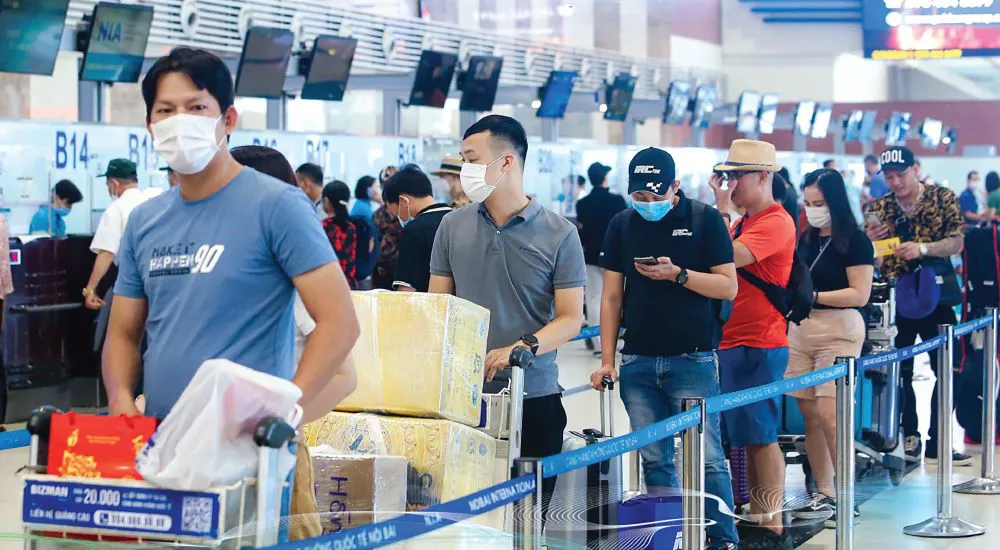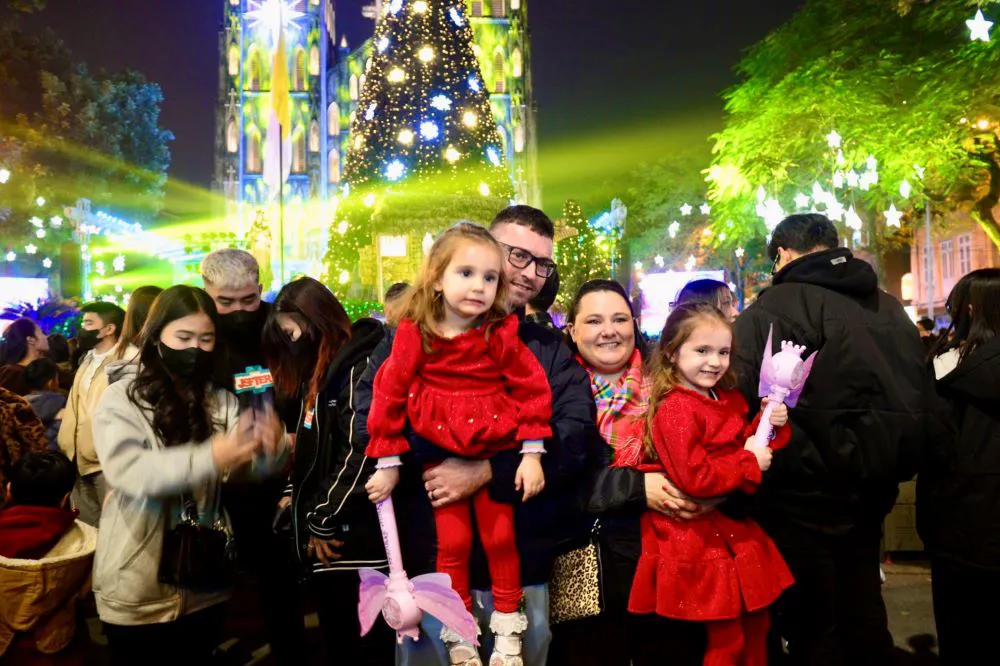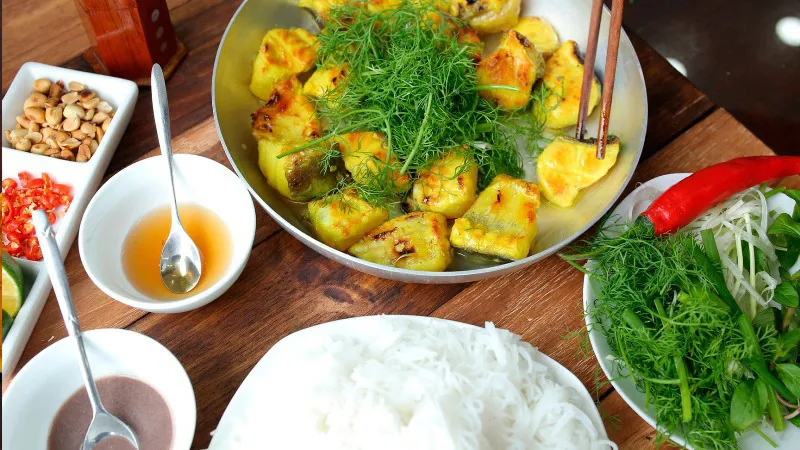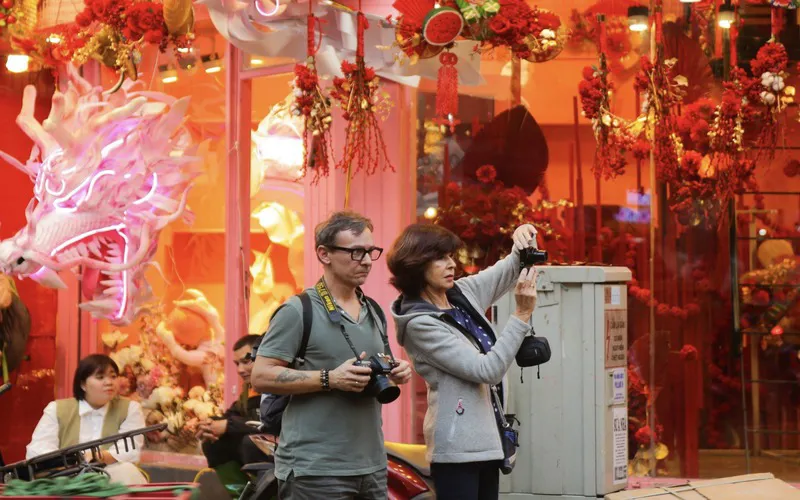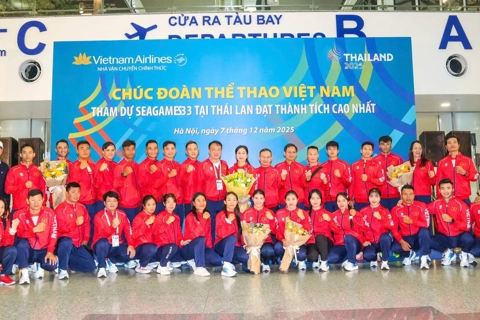Aviation, tourism partner for better tourist services
Long-term partnerships would allow both sectors to offer competitive rates and avoid price hikes during peak periods.
The aviation and tourism sectors should work together to bring down prices of hospitality services to attract more visitors, an expert from Hanoi has recommended.
| Do Dinh Cuong, Deputy Head of the Hanoi Tourism Association. Photos: Duy Khanh/The Hanoi Times |
Each sector has to cut some of its profits and the partnership would allow related stakeholders to offer reasonable prices to tourists, a good move in the context of Vietnam welcoming more visitors, Do Dinh Cuong, Deputy Head of the Hanoi Tourism Association Do Dinh Cuong told with The Hanoi Times.
He argued that the government cannot spend a large amount of money on tackling problems in the struggling tourism industry while related sectors could do with better services.
According to Cuong, airfares, which currently account for 40%-60% of tour costs, have forced travel agencies to raise domestic tour prices by 10%-20%, affecting the market sentiment and Vietnam’s competitiveness in international tourism.
Given airfare hike, travelers tend to go on their own tours and don’t use the tours offered by travel agencies, which affects these companies' ability to attract visitors despite well-prepared tourism promotion programs.
Rising airfares also affect the hospitality industry (hotels, high-end resorts, etc.) as visitors opt for affordable lodging facilities to save costs.
It’s obvious that the airfare hike would have an impact on tour operators, which would be detrimental to the promotion of domestic tourism. Additionally, it is likely to prompt international travelers to compare the travel costs between Vietnam and regional countries. It can be said that high costs would affect Vietnam in positioning its tourism market in the recovery period, Cuong stressed.
| Visitors at Noi Bai International Airport, Hanoi. |
Visitors to Vietnam and domestic tourists travel by air in the largest proportion compared to by road and sea.
According to a decision by the Ministry of Transport, the ceiling airfares would increase by VND50,000 (US$2) to VND250,000 ($10.2) from March 1, 2024. Do Dinh Cuong said the move would have a major impact on the tourism sector if the economy faces difficulties this year.
He cited rising airfares for the Hanoi – Phu Quoc route which could rise on average by 70% in 2024 to VND2.2 million ($89) and by 55% to VND1.7 million ($69) for the Hanoi – Nha Trang route.
Locals would choose foreign tours rather than domestic ones. For example, a five-day, four-night tour from Ho Chi Minh City to northeastern and northwestern Vietnam costs VND10.5 million ($428) per person and the six-night, five-day tour on the same route costs VND11-15 million ($448-$612)/pax. Meanwhile, the promotional prices for a five-night four-day tour to Thailand are half the cost.
If the airfares continue to rise in 2024 due to new regulations, local people may cut travel services, which will directly affect tourist destinations but not travel agencies, Cuong highlighted.
| Foreign visitors enjoy Christmas Eve in Hanoi. |
Partnership needed
Do Dinh Cuong stressed the importance of partnership between the aviation industry and tourism with a focus on lowering the prices of services through cooperation between the two sectors.
This means that travel businesses need to reduce the prices of their services, while the aviation industry encourages tour operators to use charter flights with preferential incentives, enabling travel agencies to diversify their products. The model benefits both sectors, Cuong stated.
Another step is for airlines to open new routes to offer passengers more options and save time and money. At the same time, travel businesses will have new services for the new routes and become strategic partners in the aviation industry.
The aviation and tourism industries must consider long-term partnerships to avoid price hikes during peak seasons. To make this idea possible, the government must act as the coordinator to ensure that the prices do not fall below the floor.
Cuong said that the Government of Vietnam should extend the application of the 8% value-added tax (VAT), down from 10%, until the end of 2024 to support local businesses and expand the range of products and services eligible for the tax reduction to boost production. The moves would be factors for economic growth, including the development of aviation and tourism.
| Cha ca or fried fish, a specialty of Hanoi. Photo: Ho Ha/The Hanoi Times |
Tourism Achievements in 2023
The year 2023 marked the recovery of Vietnam’s tourism industry. The country welcomed 12.6 million international visitors, representing 3.4 times more than in 2022 and exceeding the target of eight million. Of the foreign tourists, 11 million or 86% of them arrived by air.
Domestic tourism, on the other hand, posted a 5.8% increase 108 million tourists. Of the total, 68% traveled by air.
The aviation industry contributed greatly to these achievements. It maintained the domestic flight network and opened 66 more domestic routes connecting tourist destinations, namely Hanoi, Ho Chi Minh City, and Danang. It also connected 19 airports nationwide with more than 600 flights per day.
In 2023, new air routes were launched including Cantho – Van Don, Hanoi – Ca Mau, Ho Chi Minh City – Dien Bien. In the meantime, traditional international air routes connecting China and Russia were resumed; new routes to Central Asian destinations like Kazakhstan, Uzbekistan, Turkmenistan, and Mongolia were launched; and more routes and flight frequencies were introduced to India and Australia.
The year also saw significant changes in tourism source markets, with the top ones being South Korea, China, Taiwan (China), the US, Japan, Thailand, Malaysia, Cambodia, Australia, and India. Before the Covid-19 pandemic (in 2019), Vietnam’s leading tourist source markets were China, South Korea, Japan, Taiwan (China), Russia, the UK, and France.
Undoubtedly, the introduction of new flight routes had a significant positive impact on drawing tourists, Cuong emphasized.
| Foreign visitors in Hang Ma, Hanoi, ahead of the Lunar New Year 2024 or Tet holiday. |


